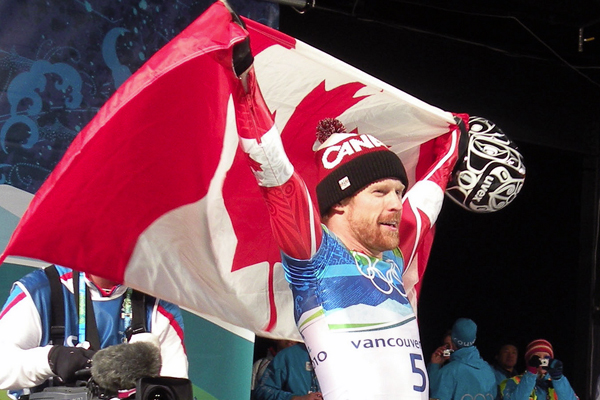Nationalist conception of Olympics is wrong
Photo courtesy of Blue and White Army (CC)
I have nothing in common with Mark McMorris. I don’t snowboard, I’ve never broken a bone, and I don’t come from a small prairie town.
But, after setting my alarm for 3:30 a.m. on Saturday, Feb. 8, I yelled at my computer for hours as I watched him compete in the finals of snowstyle, a new snowboarding event making its Olympic debut at Sochi, and wished with every ounce of my soul that all his competitors fall down (without injury) in order to give Canada its first Olympic medal.
McMorris ended up in third, and his effort gave Canada its first medal of the 2014 Sochi Olympic games. But as I tried to settle my heartbeat down and go back to sleep, I was left wondering: Why do I even care?
It’s a question that all my fellow Hudson’s Bay Company gear wearing, anthem singing, kindred spirits should also ask themselves.
Coming together to cheer for Canada is an amazing thing, but we need to remember that these are individual athletes competing, and not a representation or embodiment of some sort of Canadian spirit.
Focus at the Olympics has shifted to medal counts, rather than celebrating individual performances. In the weeks leading up to the games in Sochi, many news organizations published articles predicting Canada would surpass the record 26 medals earned at the 2010 Vancouver games. For example, Sports Illustrated said we’d take home 31. While such successes make for great television, the truth is that they don’t represent a Canadian success. They are simply the achievements of a few Canadian athletes.
Nationalism is an important part of keeping a country united, but it must be kept in perspective to remember the arbitrariness that is involved with identifying Sidney Crosby or Alex Bilodeau as part of who “we” are. I’m all for cheering as loud as you can, but such a strong focus on nationalist sentiment has led the world down some pretty dark roads. Look no further back than French soccer player Nicolas Anelka’s alleged Nazi-like salute performed after a goal in December.
In today’s globalized and diverse world, dividing identity by borders is no less arbitrary than dividing by what professional sports teams you cheer for. McMorris might be an asshole, or he might be a really nice guy, but I don’t really know anything about him, outside of the fact that I like the way he snowboards. My cheering for him because he’s Canadian is no more justified than my cheering for American Phil Kessel when he plays for the Toronto Maple Leafs. It just happens that when it comes to the Olympics, the Canadian team is the one I cheer for.
I’m not asking any of us to cheer any less —in fact, I encourage everyone to stay up until the middle of the night watching great athletic performances — but let’s remember that at the end of the day, it’s just sports. And what makes sports so refreshing is precisely how unpolitical they really are. Let’s leave the nationalist spirit for our beer commercials.





